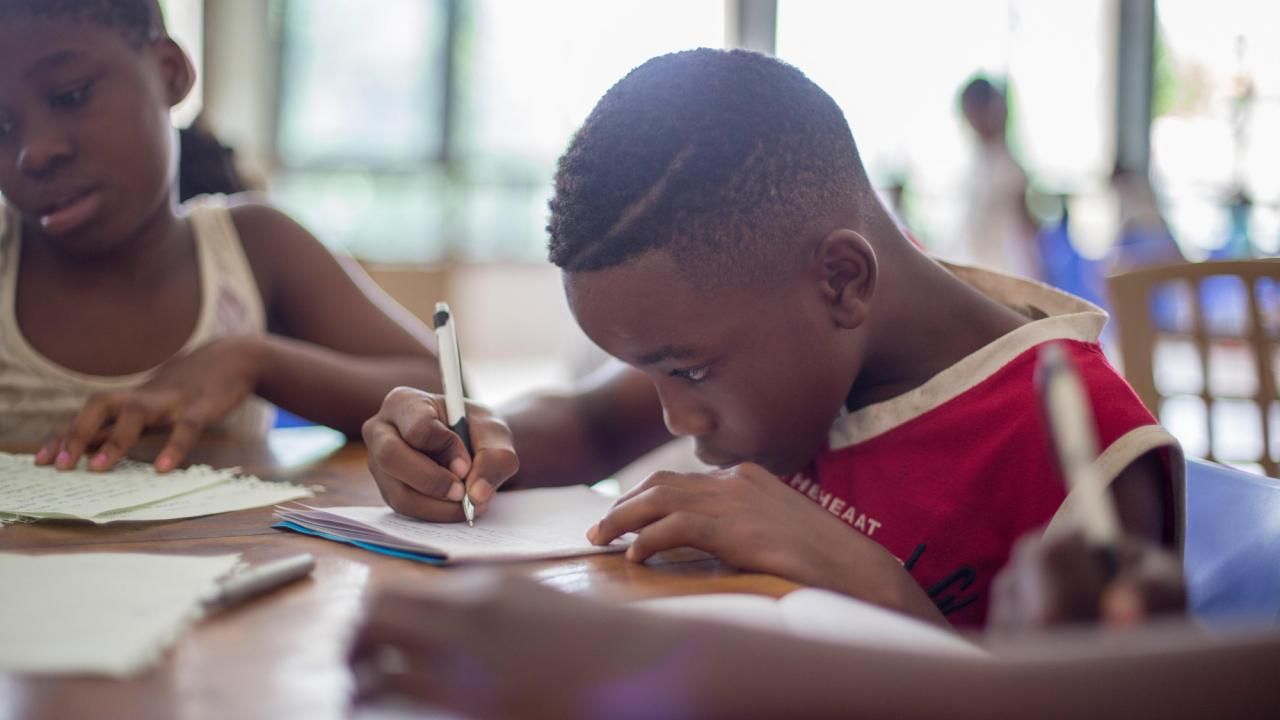7 distance learning tips for parents

The longer students are out of school due to the coronavirus pandemic, the more parents are being asked to help their children learn at home through online classes or other assignments from teachers.
Those of you who find yourself in this new, sometimes difficult role probably have a lot of questions, such as: How can I get my child to focus and do the assignments? How many hours a day should we dedicate to classwork? What can I do if my child is struggling with the material?
Jeff Greene, a distinguished professor in learning sciences and psychological studies at the University of North Carolina’s School of Education, has some tips to help make the transition easier and more productive for both you and your children.
Greene is using these same techniques in his own home while he and his wife, both psychologists, work from home during the coronavirus threat and help their children, ages 13 and 10, with their school work.
“You know, we struggle with our kids just like anyone else would,” he said. “We have our successes and we have our challenges like anybody else.”
Greene says these tips will help you be more successful while teaching your children at home:
Be kind to your children and yourself
To cut down on the stress, Greene said the most important advice he can share with parents is to be gentle and understanding with your children – and yourself – as you adjust to this new learning schedule.
“It’s not always going to go well. At times you’re going to get overwhelmed. At times the kids are going to need a break. That's OK,” he said. “Parents and families really know best what their children need and they should really listen to that inner voice and respect it.”
Know when to take a break
Children who grow increasingly frustrated and angry or seem unusually distracted need to take a break, Greene said. Parents need to understand that no one, including their own children, can be highly motivated all the time.
He urges parents to talk with their children about how they’re feeling and let them recharge instead of pushing them through those stressful moments. Kids can recharge by standing up, stretching, walking around a minute or having a healthy snack.
Let your children help choose a workspace
“I’m a big believer in choice. There’s really good research out there that when you give kids legitimate choice that they get more motivated, they feel more cared for,” Greene said.
He suggests letting your kids help pick a spot in the house where they will do schoolwork each day. Don’t select spaces that will be distracting, such as in front of a TV or near a window that looks out on a busy street.
Instead, narrow the choices to a couple distraction-free places where your children will feel comfortable. By giving your kids a reduced set of options, it makes them feel like they have some sort of control.
Create a daily schedule
“Most kids respond really well to a routine or a schedule,” Greene said. “When kids know what they’re going to be doing throughout the day, they can devote mental energy to actually doing those things as opposed to wondering, ‘Well, when am I going to do this?’ or ‘How is this going to happen?’ or ‘When am I going to get to go outside?’”
Greene and his wife worked with their children to come up with a daily schedule that provides time for schoolwork, as well as time for playing, eating and other activities.
“So far, that's working really well for us,” he said.
Don’t try to recreate school
Parents should aim for anywhere from two to four hours of schoolwork each day, depending on the age of their children.
“Don't try to recreate school. Don't try to recreate six, seven hours of curricular content,” Greene said. “That’s not reasonable. Most families don’t have the resources or time to do that.”
Instead, focus on shorter, higher-quality engagement with your kids and make time for fun activities.
“Kids pick up on stress levels,” Greene said. “Many kids are getting the sense that something’s different, something’s odd, and they need time to relax and time to decompress and time to have fun with their families.”
Be supportive when your child struggles
You don’t have to be an expert on your child’s schoolwork, but you should know how to help when your child struggles.
Parents can ask, “Where are you struggling? What do you understand so far? How might you solve this problem? Where might we get some answers?” Greene said.
When children express doubt about their ability to do classwork, parents can say the following:
- “I am confident you can do this. Let’s figure it out.”
- “I really want this to work for you, and I care about how you are feeling and thinking. How can I help?”
- Express the value you place in their education. Talk about why schoolwork is important.
Show younger children that learning is fun
For parents with young children not in school yet, Greene suggests teaching them that learning is fun and focusing on their social-emotional learning skills.
“I wouldn't worry so much about (curriculum), just given all that’s going on in the world,” he said. “Just try to nurture their curiosity and their confidence and their sense of being cared for. If parents can do that, that’s great.”
Kelly Hinchcliffe, a longtime education reporter, is a mom and lives in Orange County.









